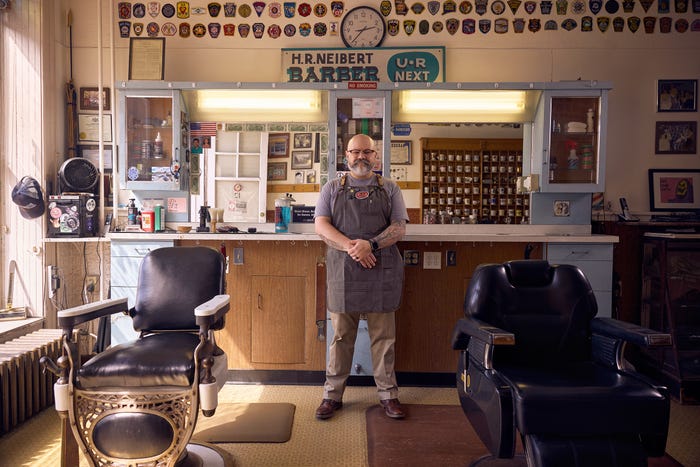Former EMT Turns Barber, Fostering Community and Connection

UPDATE: Tate Yohe, a former EMT, has transformed his life at the age of 31 by becoming a barber, a role he believes offers a unique form of therapy. This shift is not just a career change; it’s a commitment to fostering community and emotional support in a space where many men feel particularly vulnerable.
Just announced, Yohe’s journey highlights how barbershops can serve as crucial third spaces for men, distinct from work and home. “Men need a place to talk about what’s on their minds,” he stated, emphasizing the importance of these informal gatherings.
After spending years as an EMT, Yohe faced personal tragedy when his brother-in-law succumbed to cancer at just 32. This heartbreaking experience blurred his professional and personal life, leading him to reassess his vocation. Following his departure from emergency services, he explored various odd jobs before realizing his true calling was to care for people in a different capacity.
His childhood memories of visiting the barber with his grandfather inspired this change. Despite initial hesitation about touching hair, Yohe enrolled in barber school, completing 1,250 hours of training. He quickly learned that his role extends far beyond cutting hair—it’s about creating a welcoming space for clients to be heard and valued.
Now, as the caretaker of a historic barber shop established in 1928, Yohe has embraced his new role. He describes the shop as a sanctuary where men can share their stories and find solace. “I’m not holding lives anymore; I’m holding space for conversations,” he remarked, highlighting the shift from emergency care to emotional support.
Through his YouTube series, Chairapy, Yohe shares the incredible stories of his clients, including veterans and those with unique life experiences, illustrating the diverse narratives that unfold within the barbershop walls. His initiative not only amplifies their voices but also encourages others to engage in meaningful conversations.
As Yohe continues to adapt to his new profession, he emphasizes the significance of self-esteem in his work. “If someone leaves feeling better than when they came in, I’ve done my job,” he stated, reinforcing the emotional impact of barbering.
With a growing recognition of the mental health benefits associated with barbershops, Yohe’s story is resonating widely. His commitment to creating a supportive environment is more relevant than ever, as many seek connection in an increasingly isolated world.
Stay tuned for more updates on Yohe’s journey and the role of barbershops in community mental health. This urgent narrative underscores how small changes in profession can lead to profound impacts on individual lives and communities at large.






